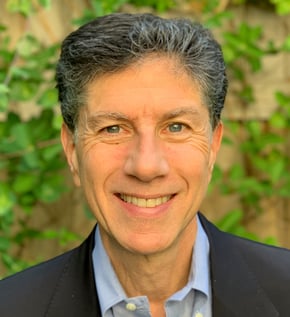Differing views from Smartleaf and Wealthfront on the future of wealth management

Last week, I participated on a wealth management panel on “the future of wealth management” at the Lendit conference in NYC.* All of the panelists had interesting things to say, but I want to comment here on a provocative point made by Ashley Johnson, the COO and CFO of Wealthfront. Ashley was direct in her assessment of the future of human advisors: most will be replaced by software-based advisors known as "robos." Robo advisors are less expensive and can perform all the mechanics of wealth management — asset allocation, rebalancing, transfers, reports, etc. — as well as or better than human advisors. So, why would — why should — investors pay a premium to get these services from human advisors?
My answer is…they won’t and they shouldn’t. Investors won’t pay advisors anything like current advisory fees to get services they can get for much less elsewhere. And advisory firms that offer these services and nothing more should, indeed, worry.
But I don’t think this means the advisor is obsolete, or even that advisors will face fee compression. What it does mean is that advisors will need to provide valuable services that robos cannot and become more explicit about the differentiated services that they provide. Fortunately, most advisors have always done this. It’s a cross between planning, counseling, and coaching, as well as acting as the central coordinator of related professional services like accounting, insurance and trusts & estates. You can compare this shift in wealth management to the effect that Turbotax has had in accounting. Turbotax has not made accountants obsolete. It has, however, meant that accountants don’t get paid much for filling out forms and doing simple math. The best accountants are part expert and part consultant, guiding clients to solutions that clients couldn’t achieve on their own.
I’ve always admired Wealthfront. I think they are acting as a catalyst to change wealth management for the better. Like Wealthfront, I think the future of wealth management is becoming better for investors. Unlike Wealthfront, I also think it’s getting better for advisors — at least the ones that make the transition to being paid for differentiated services.
*The panel was hosted by Will Trout from Celent. Other participants included Vinod Raman of Fidelity, Eric Poirier of Addepar and Lowell Putnam of Quovo. I wish to express my thanks to Will, Ashley, Eric, Lowell and Vinod for making the panel so engaging. For more on Wealthfront's stark prognosis for human advisors, click here: Software is Better than People. Their focus is on the next generation of investors, those who are younger and often prefer digital solutions and wealth management software. Wealthfront adds financial planning to the list of what software-based advisors can do better than human advisors.
I'm skeptical, not because computers can't come up with good plans, but because so much of financial planning is really about hearing what's not said and coaching investors to change their behavior.
For more on industry events, check out In|Vest 2018: What we Heard in the Hallways.


COMMENTS